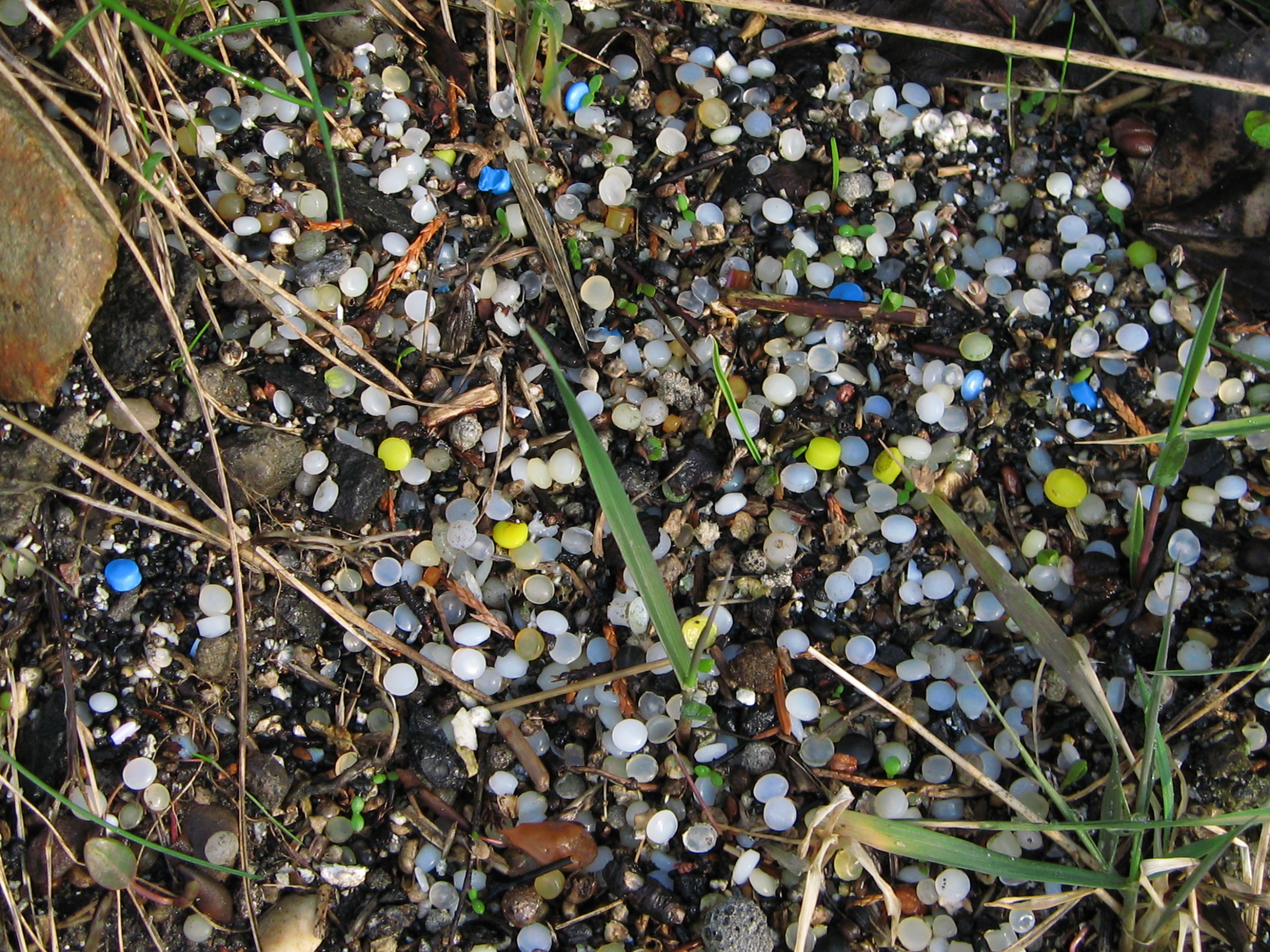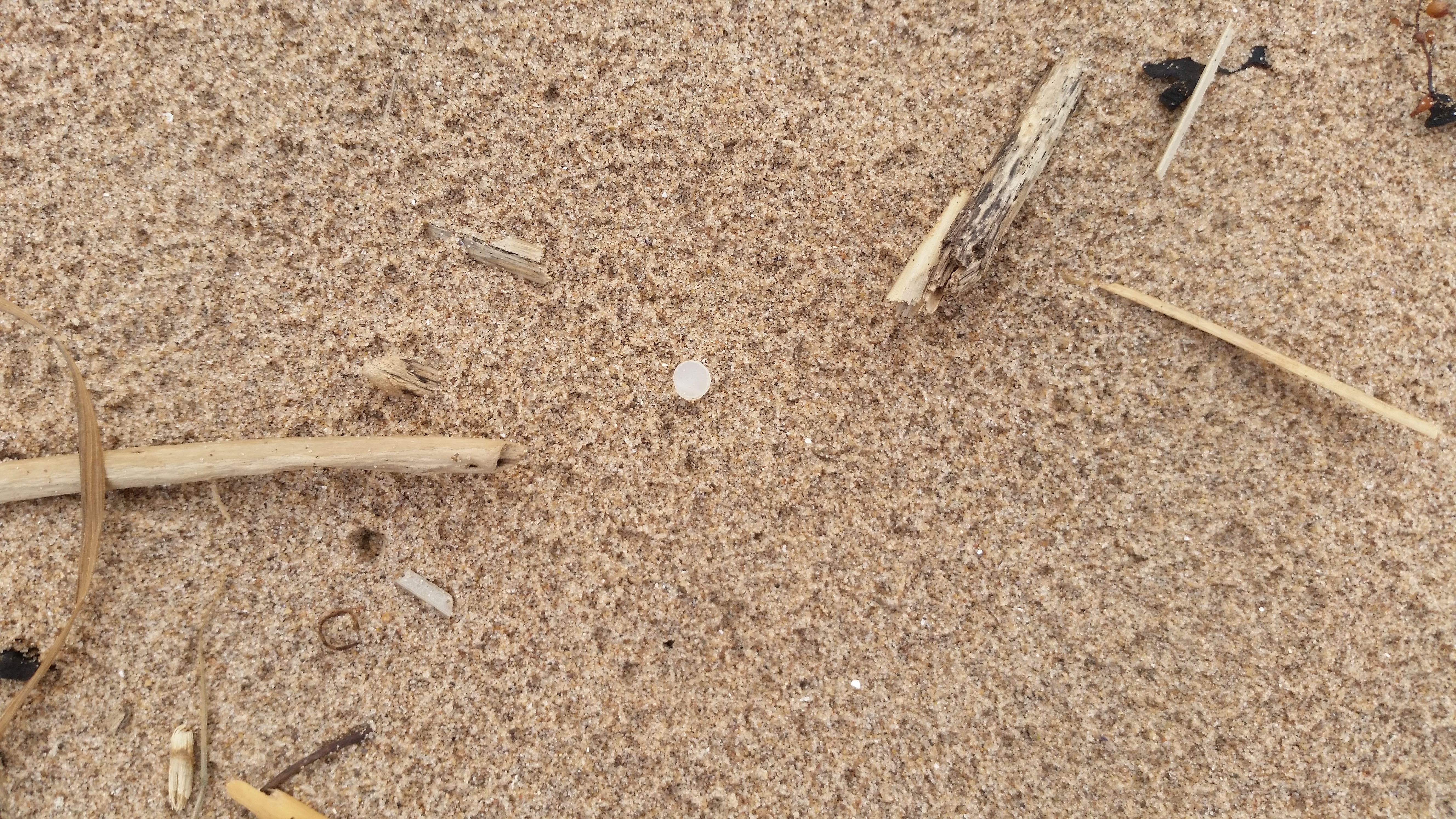
photo credits: https://commons.wikimedia.org/wiki/File:Nurdles.jpg
As Sri Lanka continues to struggle to restore its devastated tourism industry, the country faces a reoccurring issue: the nurdles that are decorated along the south and west beaches of Sri Lanka.
In May, 87 containers of nurdles, which are essentially small plastic pellets - used to make a range of commodities, escaped into coastal areas in Sri Lanka following the fire and sinking of an X-Press Pearl cargo ship. The spill of said nurdles has resulted in the death of dolphins and other marine life and has wrecked the livelihood of an estimated 20,000 families who can no longer fish due to the X-Press Pearl disaster. These families struggle to make ends meet even with government compensation.
Hemantha Withanage, Director of the Centre for Environmental Justice in Sri Lanka stated that some of the 46 dolphins, 470 turtles, and 8 whales that washed up ashore were lodged with nurdles.

photo credits: https://commons.wikimedia.org/wiki/File:Nurdle,_Dawlish_Warren.jpg
While nurdles may look harmless, they are contaminated with hazardous chemicals which are partly burnt. Unfortunately, the small pre-production plastic pellets are often mistaken for food by fish, birds and other wildlife, causing a host of health problems. See more here.
Accusations were also made regarding the storage of nurdles, rather than being stored in hard containers; Withanage stated that the escaped nurdles had been kept in polythene bags, after the discovery of a large polythene bag of nurdles buried as far as a meter under the sand.
Although nurdles are collected in countless bags day after day, locals see no end to the current environmental crisis. Unfortunately, each wave of the ocean brings back more and more nurdles, while many volunteers and locals scour the beaches in efforts to reclaim their shores and livelihood.
According to a UN report, this is considered the biggest plastic spill in the history of marine disasters; nurdles are also named as the second-largest source of oceanic micro-pollutants in the world.
Despite such environmental concerns, International Maritime Organization's hazardous goods code does not consider nurdles to be hazardous, in an attempt to declare nurdles as toxic waste Sri Lanka has submitted a proposal that is scheduled to be reviewed this year.
We need your support
Sri Lanka is one of the most dangerous places in the world to be a journalist. Tamil journalists are particularly at threat, with at least 41 media workers known to have been killed by the Sri Lankan state or its paramilitaries during and after the armed conflict.
Despite the risks, our team on the ground remain committed to providing detailed and accurate reporting of developments in the Tamil homeland, across the island and around the world, as well as providing expert analysis and insight from the Tamil point of view
We need your support in keeping our journalism going. Support our work today.
For more ways to donate visit https://donate.tamilguardian.com.

